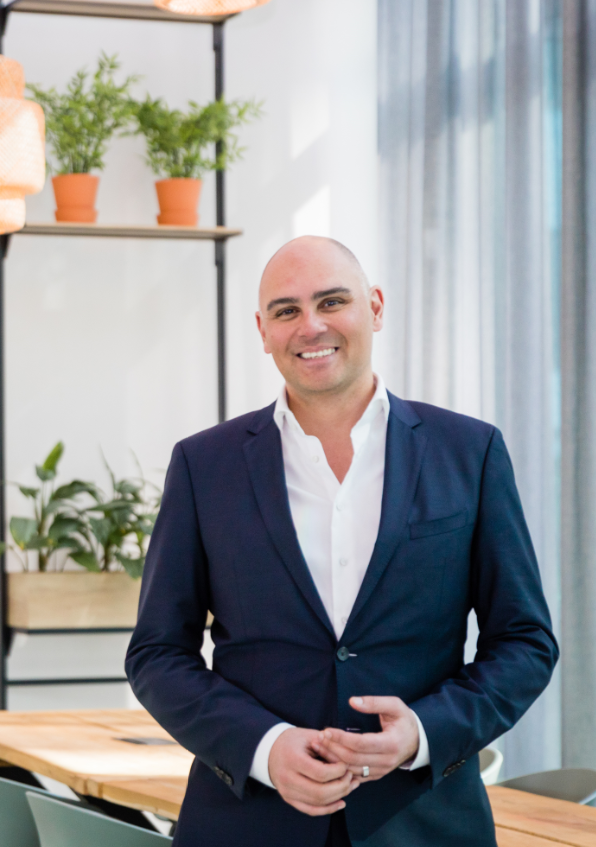
For Richard Gerritsen, regional director of European sales at Yardi, leadership is all about creativity.
“Technology changes the world. We play our role in this as technology partner, but it is also about finding the right balance between costs and benefits. We try to encourage our sales teams to define the best solutions for our clients. At the same time, it is important that our salespeople, and all other staff, feel comfortable in their own skin.”

Dutch real estate publication Vastgoedmarkt recently spoke to Gerritsen about work/life balance, the need to learn from successes and failure, and the willingness not to think in just commercial terms. The interview below is reprinted with permission.
Difficult circumstances
Gerritsen notes that many of his team members are finding living circumstances difficult due to the COVID-19 pandemic.
“I live outside the city and, after a day full of video conferences, I hop on my bike and I can be out in the countryside in just a few minutes. By the time I return home, I feel refreshed and have recharged my batteries.”
“It’s important to recognize that we have young people working at the company who have an urban lifestyle. They live in apartments in areas where there’s normally plenty going on in the evenings, and they’re used to spending a lot of time socializing away from home. Their lives have been enormously diminished by the crisis; living between the bed, sofa and dinner table. Some of them are finding it a real struggle. Set against this, our work is about bringing across a message with great energy, passion and enthusiasm. The combination is hardly a recipe for success. It’s very difficult to know how to help them in this situation.”
For Gerritsen, leadership in these times becomes an effort to boost energy levels within internal teams as well.
‘The question is, how can we draw a positive message out of the situation we now find ourselves in. We are facing new times with new a set of requirements. Where do we go from here? This is something we need to give serious thought to. In the first few weeks when everything came to a standstill, we focused a great deal on exchanging knowledge and experience. Every morning, there were team meetings to share experiences. With training courses on product and market expertise, but also an invitation to develop a new vision of how we could serve our markets.”
Other cultures
We can learn from our successes, but we can learn just as much from failure, believes Gerritsen.
“If a client decides to go elsewhere or, equally, if they choose to stay with us, we need to draw lessons from that. That’s the only way we will learn to be better tomorrow than today.”
In his self-reflective quest, he is reminded of the clash of differing work cultures.
“Our clients are based in thirty different countries, and in Europe we have teams in five countries. Dutch people are generally fairly direct in how they communicate, while Germans might come across as quite firm. Personally, I find that hard to deal with sometimes, as there’s only one version of the truth. It’s not about them doing it all exactly my way. You will only get the message across if the person who is trying to make the sale can make it their own, authentic story.”
What’s going to work better in these changed times? How can digital resources help businesses further?
‘The COVID-19 pandemic has meant that many employees are suddenly working from home. All these people need to have access to the right resources and the right data over the internet. That’s why it is so important that businesses have well-integrated systems and access to all the relevant data, documents and functionalities. It should make no difference if someone is working from the office, home or holiday address; the same level of service will be guaranteed.”
Practical solutions
In his view, the more technology you have, the better the socially distanced society will work.
“Over recent months, we have started new initiatives to support the new reality. In part, it was about introducing new technology, such as chatbots, but also practical solutions. Many of our clients are involved with tenants who are having financial difficulties. This results in a flood of custom solutions. The important thing then is to make sure all the different agreements have been clearly set out. It is also important to have a clear insight into how these agreements impact cash flow at property and portfolio level and the entire organization. That way, companies will not lose sight of what is happening in the situation overall and can make the right strategic decisions.”
He also emphasizes the importance in these difficult times of not thinking solely in commercial terms.
‘The focus needs to be on helping our clients; partners with whom we typically maintain a long-term relationship. It’s not about getting the highest price for a product; we are a privately-owned company and that’s not how we work. At Yardi, we already knew that, but over the past months it has become clearer than ever. We communicated with clients and staff immediately after the virus broke out, with the message: If you’re facing problems, please let us know. We’ll work on a solution together.”
“After the global outbreak of coronavirus we also made our eLearning platform, Yardi Aspire, available free of charge to make it easier to find a way to survive in these difficult times.”
(Editor’s note: Clients can log in to the training resources page on Yardi Client Central, filter for self-paced courses to register their employee for a topic-specific Learning Plan via Yardi Aspire. )


